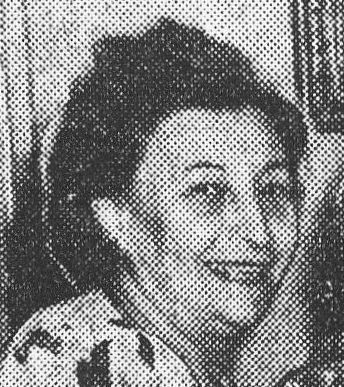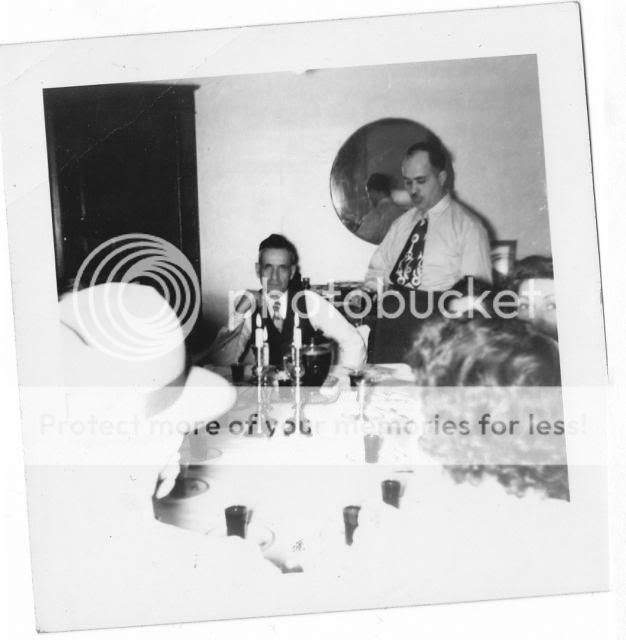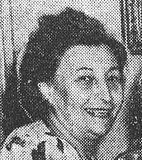The earliest picture that I have of my Dad is a group photo, taken when he was nine years old. He is in the back row, standing between his cousins, Saul Rabinovitch and Sophie Tansky. In the front row are (left to right) his cousins Arthur Tansky and Debbie Rabinovitch, and Dad's younger brother (and my uncle) Moe Lutsky. My Uncle Marvin, arrived a few years later.
Dad was considerably older in this next picture, and quite handsome. It's easy to understand what Mom saw in him, the first time they danced together.
Dad went off to war in 1941 or 1942. He was in the quartermaster corps, and drove supply trucks in Italy and the Netherlands. He spoke very little about his war experiences, but liked to tell the story of his demobilization. According to Dad, the officer handling his discharge discovered that his records were incomplete; Dad had never been given a driving test. Never mind that he had driven supply trucks in Italy; never mind that he had driven trucks through the Netherlands. He could not be discharged until he had passed his driving test! Dad's final assignment was to undergo and pass his driving test. His discharge followed promptly thereafter.
Dad and Mom married on March 10, 1946
They were a twosome for three years.
Until I came along in 1949.
And the twosome became a trio.
Barbara came on the scene four years later.
Hmmm. What am I supposed to do with this little baby?
And our family was now complete.
Seven years later, celebrating the 50th wedding anniversary of my grandparents, Mary and Jack Quint.
Dad was a reader and loved fiction, whether in the form of a novel or a newspaper. Wonder what he would have made of the headlines on the day of his birth?





















